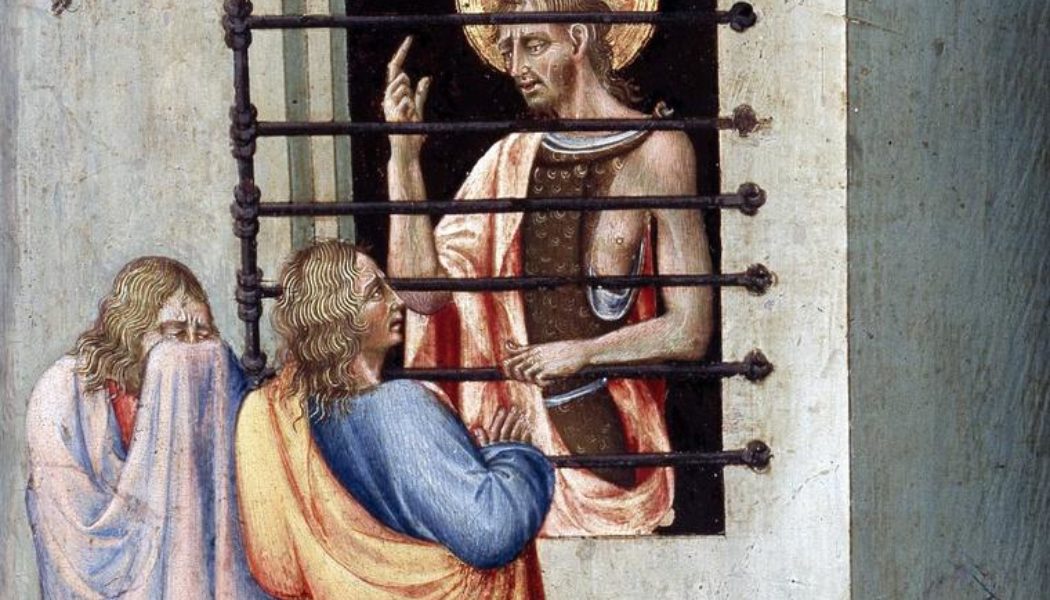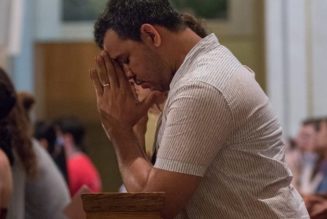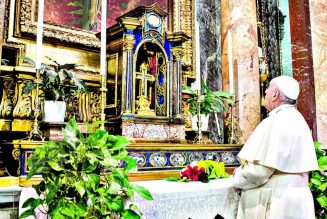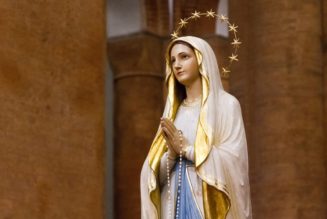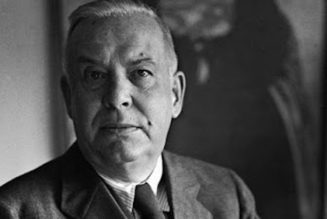
Among those born of women there have arisen many mediocrities like Herod Antipas, who feared his family and friends more than he feared God
It is impossible to imagine the terror that surely struck the heart of John the Baptist as the executioner approached his prison cell. The executioner would have been hurrying, since the king, Herod Antipas, was waiting for the bloody deed to be done. The man would have been flanked by soldiers, who were there to drag the chained man out of his cell.
John was probably someone people gawked at because he wore animal skins, lived alone in the desert, and dined on honey and locusts. Because of his bare-bones existence, he eventually became the patron saint of hermits. He was the first person to reveal Jesus’ true identity to people: “Behold the Lamb of God, who takes away the sins of the world.”
John was in prison because he’d dared to tell the king the truth about marrying his brother’s ex-wife, Herodias. According to Jewish law, the marriage wasn’t lawful, so the king and Herodias were in an adulterous relationship. John had to know that speaking the truth would lead to imprisonment and possibly death, but he was willing to become a martyr for the truth.
Herodias hated John for openly condemning their illicit marriage, and she wanted him dead. When Herod threw himself a birthday party and invited the leaders of the community, she got her chance.
Herodias’ daughter performed a dance that so enchanted the king that he made an outlandish statement, offering to give her whatever she wanted. The daughter asked Herodias what to ask for, and the sinister response was straightforward: “The head of John the Baptist.” The girl relayed this horrifying message to Herod, who was distressed by her words, since Mark tells us “Herod feared John, knowing him to be a righteous and holy man.”
Tragically, Herod was too cowardly to back down in front of his guests, so he summoned the executioner and ordered John’s death. It’s noteworthy that none of Herod’s guests had the courage to oppose this terrible turn of events. We don’t know what John’s last words were, but it wouldn’t be surprising to learn that he forgave the men who came to kill him and the crowd who failed to defend him. This gesture would have been in keeping with a forerunner of the one who had said, “Love your enemies and pray for those who persecute you.”
In a scene that seems straight out of a horror movie, the executioner carried John’s head out on a platter and presented it to the girl, who gave it to her mother. What started out as a celebration that day ended on a tragic note. Darkness must have descended over the partygoers after they saw the bloody head of a man hailed as a prophet. They had to be aware they were complicit in this death because of their failure to speak up.
Matthew’s Gospel (14:12) tells us what happens next: “His disciples came and took away the corpse and buried him, and they went and told Jesus.” Jesus’ reaction was somewhat similar to the reaction he had upon learning of Lazarus’ death. In that instance, he broke down and wept. After John’s death, Jesus withdrew in a boat, alone, to a deserted place. It is likely he sought solitude and quiet to pray and mourn John’s death.
John the Baptist and Jesus had a deep connection forged before their births. The two first met when Mary, newly pregnant, went to visit her cousin Elizabeth, who was six months pregnant with the baby who would be named John. When Elizabeth saw Mary, the baby in her womb jumped for joy, which means an unborn baby was the first to recognize the Savior of the world. Mary stayed with Elizabeth about three months, so she — and the baby Jesus in her womb — were most likely present at John’s birth.
After John had begun his ministry, Jesus praised him highly by saying he was “more than a prophet.” Jesus also said, “Among those born of women there has been none greater than John the Baptist.” Jesus told people that John was mentioned in a prophecy by Isaiah: “A voice of one crying out in the desert. Prepare the way of the Lord, make straight his paths.”
Before the crucifixion, Pilate sent Jesus in chains to see King Herod. Luke tells us “Herod was very glad to see Jesus; he had been wanting to see him for a long time, for he had heard about him and had been hoping to see him perform some sign” (23:8). Jesus, however, had already chastised people who wanted a sign, since this showed a lack of faith. Jesus knew Herod had murdered his beloved cousin, and when Herod questioned him, Jesus refused to say even one word.
Pilate wanted to release Jesus, but the crowds clamored for crucifixion. Similar to the events leading up to John’s death, no one stepped forth to protest his unjust sentence. There is no bloody head on a platter, but rather the broken and bleeding body of Jesus dying on the cross for the crowds to witness.
On the day marking the Passion of St. John the Baptist, the faithful forerunner of Jesus, let us pray for his intercession, that we too will have the courage and grace to uphold the truth, no matter what the cost.
